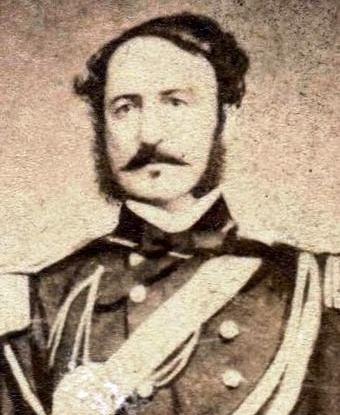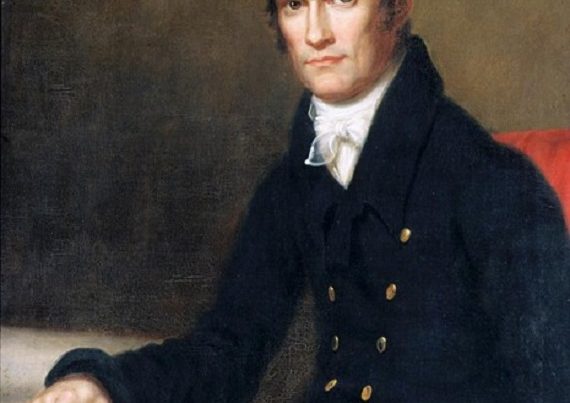From the Confederate Veteran, February, 1916:
Tommy Logan was a typical son of the Emerald Isle, who entered the Confederate army at the first call for troops 11 tn Mississippi. He joined the company to which I belonged, which was formed of young planters, all or nearly all the sons of wealthy planters of Hinds and Madison Counties. Tommy was older than any of the other privates and had traveled over nearly all the States as a common laborer, mostly with his shovel or hod. Never was Tommy wanting in a reply to any question asked; he needed no time to “frame” his answer. The only besetting sin of this true man and soldier was his love for the jug. No kinder man ever lived. He was liberal to a fault and had impoverished himself that others might not suffer.
When General Lee’s army was encamped around Fredericksburg, Va., with the Federal army waiting to attack as soon as they could cross the river, General Magruder, a splendid officer and brave commander, issued an order that no intoxicants should be sold within the Confederate line nor sold or given away to any Confederate soldier. General Magruder was himself a hard drinker, and this, and this alone, kept him down to the rank of major general. A few days after this order Tommy was detailed as a guard at General Magruder’s headquarters and was on duty near the General’s tent when a conversation arose between the officers as to why the pay of the Confederate army was fixed at odd numbers, a private receiving $11 per month, a sergeant $17, a lieutenant $91, a captain $121, and a general $301. They could arrive at no conclusion to the controversy. One of the aids to the General who knew Tommy said : “General Magruder, old Tommy Logan, the guard out there, may answer your question. He has a ready answer to any question asked him.”
So another soldier was sent to take Tommy’s place, and Tommy was ordered to headquarters more as a joke than for information. When Tommy came up, it was plainly seen that he had been drinking, and he thought that was why he was ordered to headquarters. General Magruder said: “Sir, I see you have been drinking. Will you tell where you got the whisky?” “O, Gineral, I’m afraid you will put me in the guardhouse, and I think the damn Yankees are thinking of taking Fredericksburg, and I would hate to tell some of my good friends in town I did not fire a shot in their defense.” “No,” said the General, “I will not punish you if you will tell where you got your whisky.” “Ah, Gineral, that sounds so kind of you to say that that it matters not where I got the whisky; so I will tell you the God’s truth where I got the liquor.” “Yes, if you will tell me truthfully where you got the whisky, I shall see that no punishment is given you. Now tell me, where did you get the whisky?” “Well, Gineral, I took a stroll around the hills beyant the clump of bushes, and I saw some horses hitched, with no attendant looking after them. When I was with a racer in Kentucky some years ago I learned to love horses, and one of these animals was a beautiful bay. Ah! he was of royal blood, I bet. I went up to him and rubbed his head and neck. He seemed to know his admiring friend. On going around him I discovered a canteen hung to the saddle, and, the divil take my curiosity, I smelt of tin- canteen and found about three drinks of good whisky. My curiosity to taste was up, and I took a small drink. Ah! bad luck to whisky. It made me want more, and I drank the entire contents of that canteen, not more than three fingers, though.
Here the General put in: “Well, you are telling a long-winded story, and the one who owned the whisky or horse you have not divulged, and you seem to want to hide. Out with the truth. Whose horse was the canteen on?”
“Ah! my kind Gineral, I do not know the owner; but I have seen for the last six months seen yon ridin’ that noble animal.”
When this came out, the entire office force began to laugh, and one said : “General, Tommy is too much for you.” “But,” said the General, “he has not only got off for being drunk, but has gotten drunk on my whisky.”
As Tommy started to leave, the General (who enjoyed the joke on himself) said: “Tommy, I sent for you not knowing you had been drinking; but some one said you could explain why soldiers’ pay was put at such odd numbers. Now you get $11 per month, and I get $301 per month. How do explain that?”
“Ah! Gineral, that is aisy. I get $10 a month for the work I do as a private and $1 for the honor of being a soldier, and you get $300 for the honor of being a gineral and $1 for the work you do.”
I now must tell you that General Magruder never passed our company at any time on the march or in camp and saw Tommy that he did not raise his hat and salute the private who explained so fully the odd numbers that Congress fixed as the pay for its officers and soldiers of the line.







The late, lamented Broadfoot Publishing included in the description for the complete set of the Confederate Veteran the disclaimer for “tall tales” contained within the volumes. It was a good natured and well intended advisory given the telling and retelling, remembering and misremembering of war stories.
A great story the Veteran article is and probably happened as told but it didn’t happen where and “When General Lee’s army was encamped around Fredericksburg, Va., with the Federal army waiting to attack as soon as they could cross the river… “. By the Battle of Fredericksburg, Dec. 1862, Gen. John B. Magruder was in command in the Trans-Mississippi, Gen. Lee having gladly approved Magruder’s impending transfer out of the Eastern Theatre following misadventures of the Seven Days Campaign around Richmond in the early summer. The incident very well may have occurred “when Gen. Lee’s army was encamped around [Richmond] with the Federal army waiting to attack as soon as they could cross the river”, the Chickahominy. The characterization of Gen. John B. Magruder as “a splendid officer and brave commander” is accurate, as is the idea that he enjoyed a drink believable. No doubt, private Tommy Logan and the General had shared experience.
The byline in the Confederate Veteran article reads: “By Annie Laurie Starkey, St. Louis, Mo.” without mention of the narrator’s name.
We love our Rebel Army…never has a people given so much to earn their freedom…still fighting to this day. I salute all of you here who continue the struggle for truth.
God bless Tommy!
Slainte, Tommy!